Extreme heat events 'creeping up on us', says expert

A clear blue sky on a summer's day in England
- Published
A late 19th Century experiment was said to show a frog would not jump out of a pan of water and save itself if the water was heated slowly. A grisly way to go.
Some scientists, like University of Reading's Eugene Mohareb, think the story could also be used to describe our failure to react to the high temperatures we are seeing.
"Extreme heat events have been creeping up on us over the past 25 years," he said. "Like with the frog and boiling water, we haven't noticed how much more frequent they've become."
Statistics show that June heatwaves are becoming increasingly common and intense, so how can we keep the heat out of - as well as in - our homes?
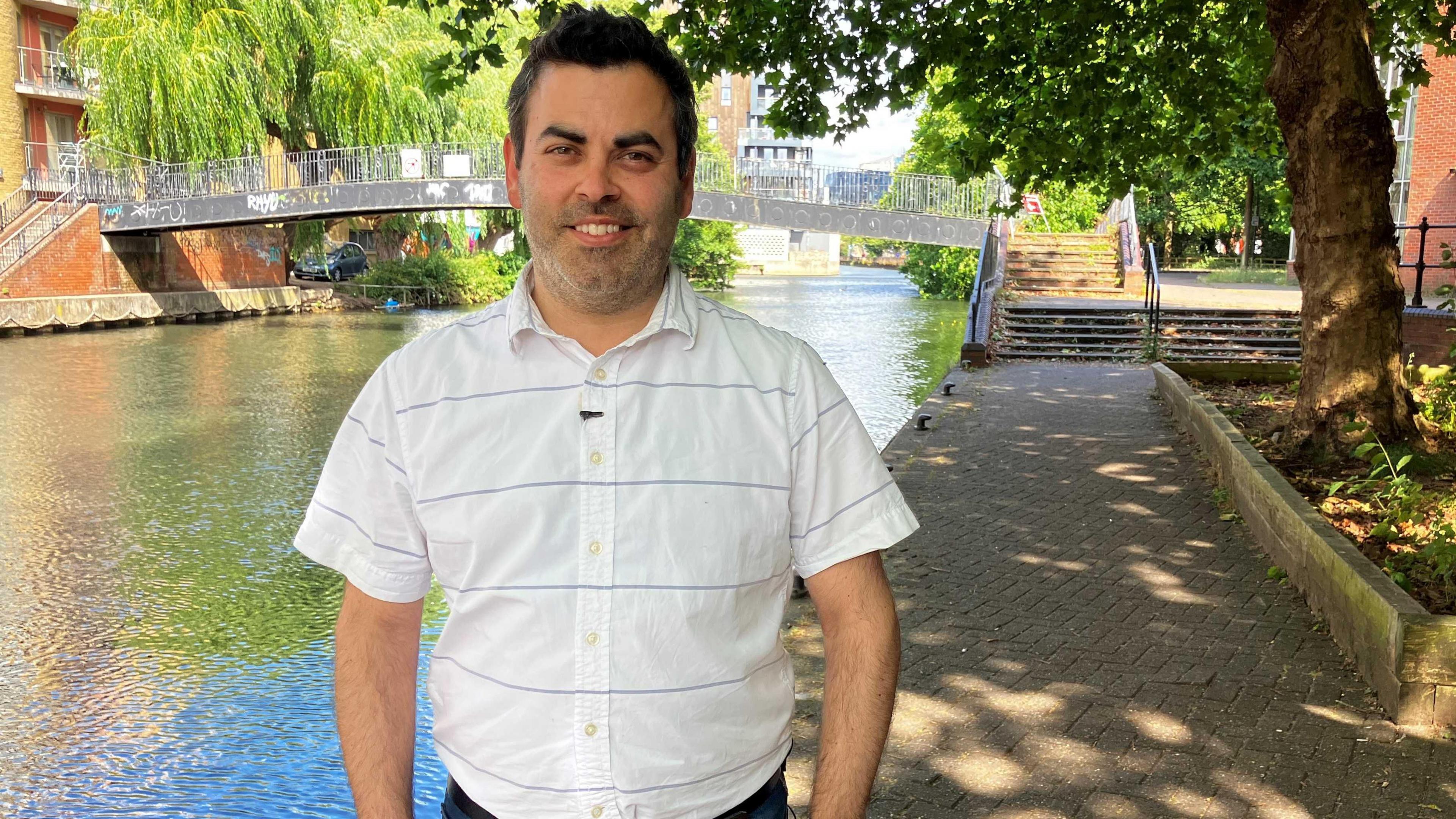
Eugene Mohareb says people have been slow to cotton on to how common extreme heat events are becoming
As strange as it may seem, one of the answers is the insulation we put into our homes to keep them warm in the winter.
Housebuilding experts say insulation in the walls can also act as a heat barrier.
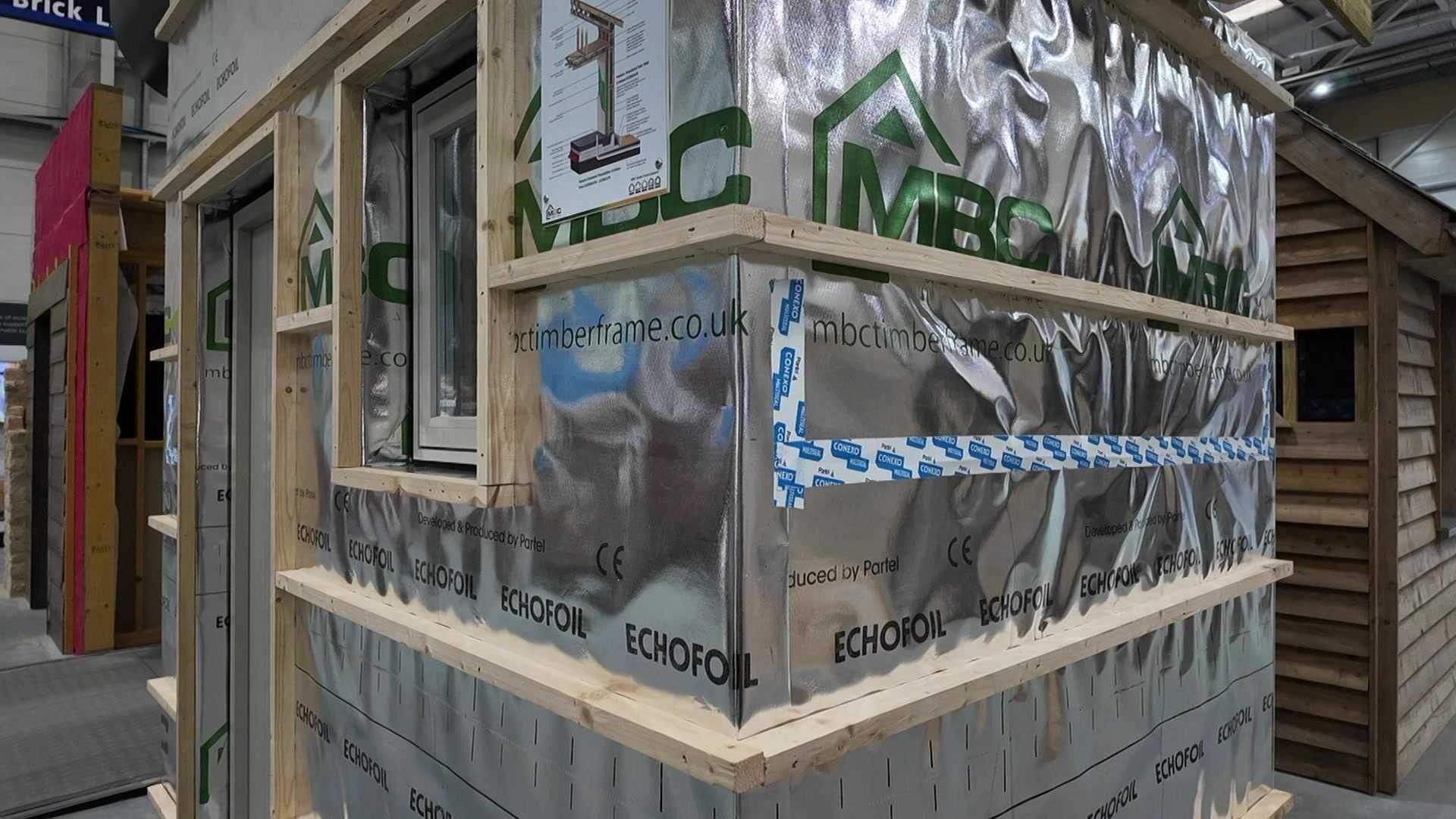
Home insulation membranes are designed to keep heat both in and out
Staff at Swindon's National Self Build and Renovation Centre say they are seeing a big increase in calls from self-builders wanting to know how it works.
Managing director Harvey Fremlin said: "The key is in the detail with insulation.
"The fabric of your building will be breathable so it will retain the heat in the colder months, with the installation products designed to do that, but they're also designed to block out solar gain - the heating from the sun."
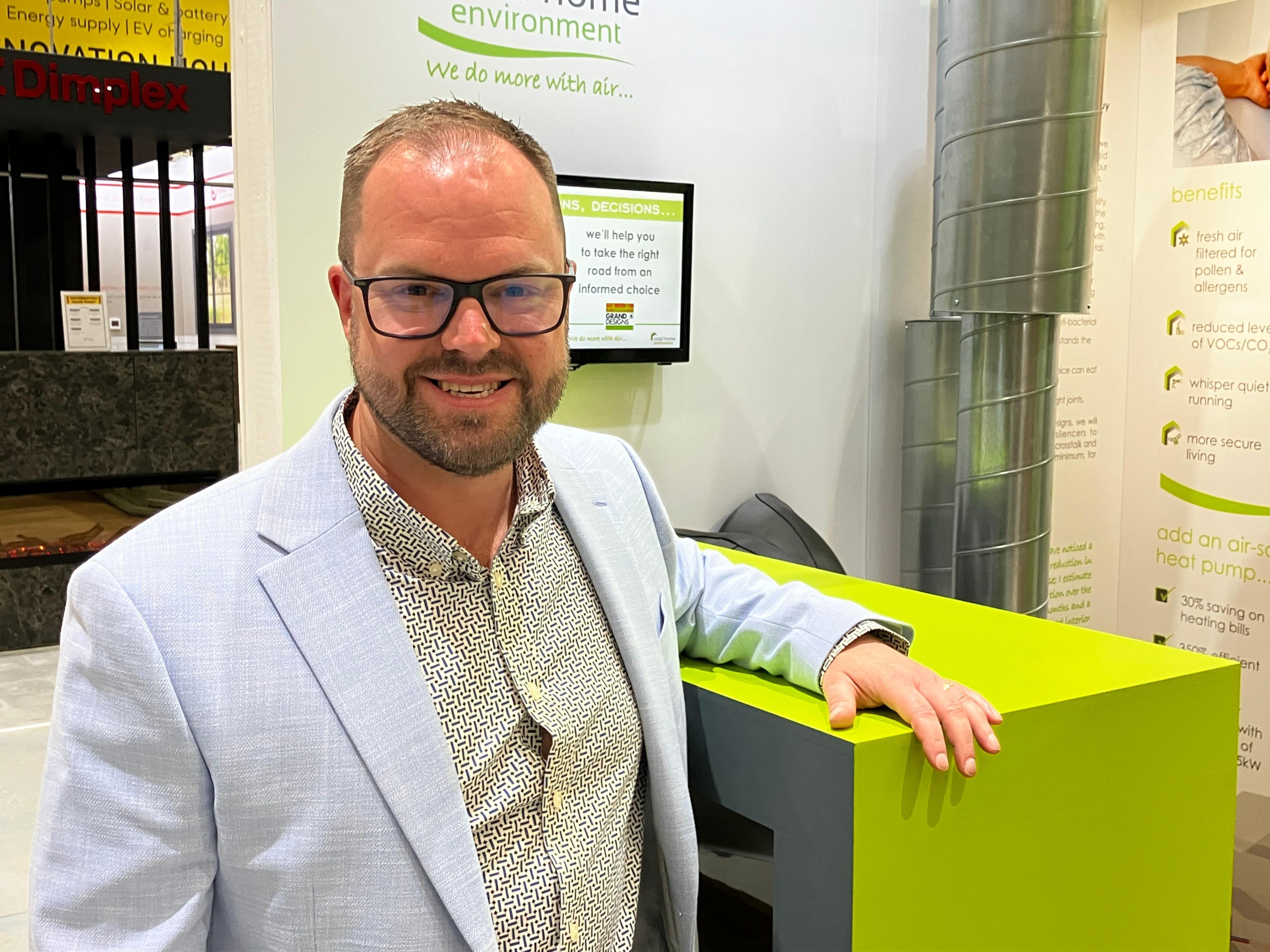
Mr Fremlin says it is all about the detail
The government has said 1.5 million hew homes need to be built over the next four years.
It wants developers to install heat pumps in these homes to keep people warm while reducing carbon emissions.
However, the right type of air source heat pump, installed correctly, can also help cool our buildings.
Mr Fremlin said mechanical and heat recovery systems filter out the external air and "bring that fresh air into a home, providing heating in the winter and cooling air in the summer".
Upgrading double glazing to triple glazing can also help as the extra layer will reflect the sun's rays back into the atmosphere.
None of these solutions are cheap but one product Mr Fremlin says is becoming increasingly affordable is electric shutters.
A common feature on apartment blocks in countries like Spain, he expects the extreme heat the UK is seeing at the moment will inspire more people to buy them.
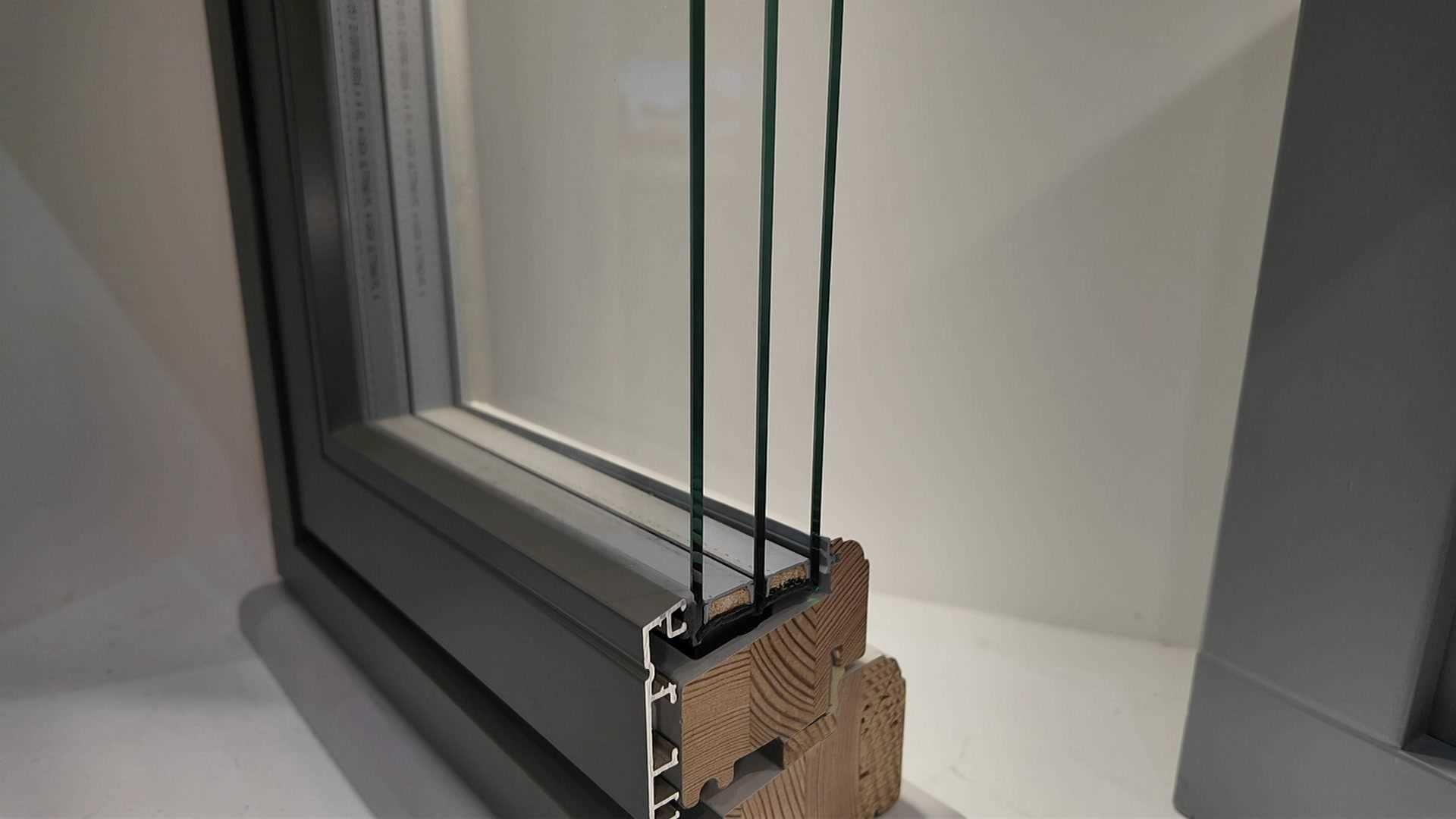
Triple-glazed windows can keep inside spaces cool when the mercury climbs outside
Electric shutters are not the only things we're used to seeing when we holiday in southern Europe.
Air conditioning is one of the first things people look for when booking a holiday there.
Dr Mohareb, who lectures in sustainable urban systems, does not think that is the answer for the UK.
"While we do have the occasional extreme heat event, many days of the year we won't have any need for air conditioning," he said.
"When you've got very short intermittent heat events then the expense of it isn't really worth it."
Heatwaves are particularly dangerous for older people with health problems but a new report from the UK Green Building Council warns climate change means some schools in London and the South can expect heatwave-like temperatures for 10 weeks a year in a 2C (36F) global warming scenario.
As for the here and now, research by Imperial College London estimates more than 550 people will have died as a result of the recent spell of persistent hot weather.
In its latest three month outlook, the Met Office predicted this summer (1 June to 31 August) is twice as likely to be hotter than usual.
The pressure is on to make sure our towns and cities can cope with what is coming down the track but Dr Mohareb says there is still time to react to what is happening around us.
''Adaptation is kind of the next big thing that we need to be moving on," he said.
"We really need to be making more effort to improve the quality of the built environment so we're better prepared for the extreme weather events we're expecting."
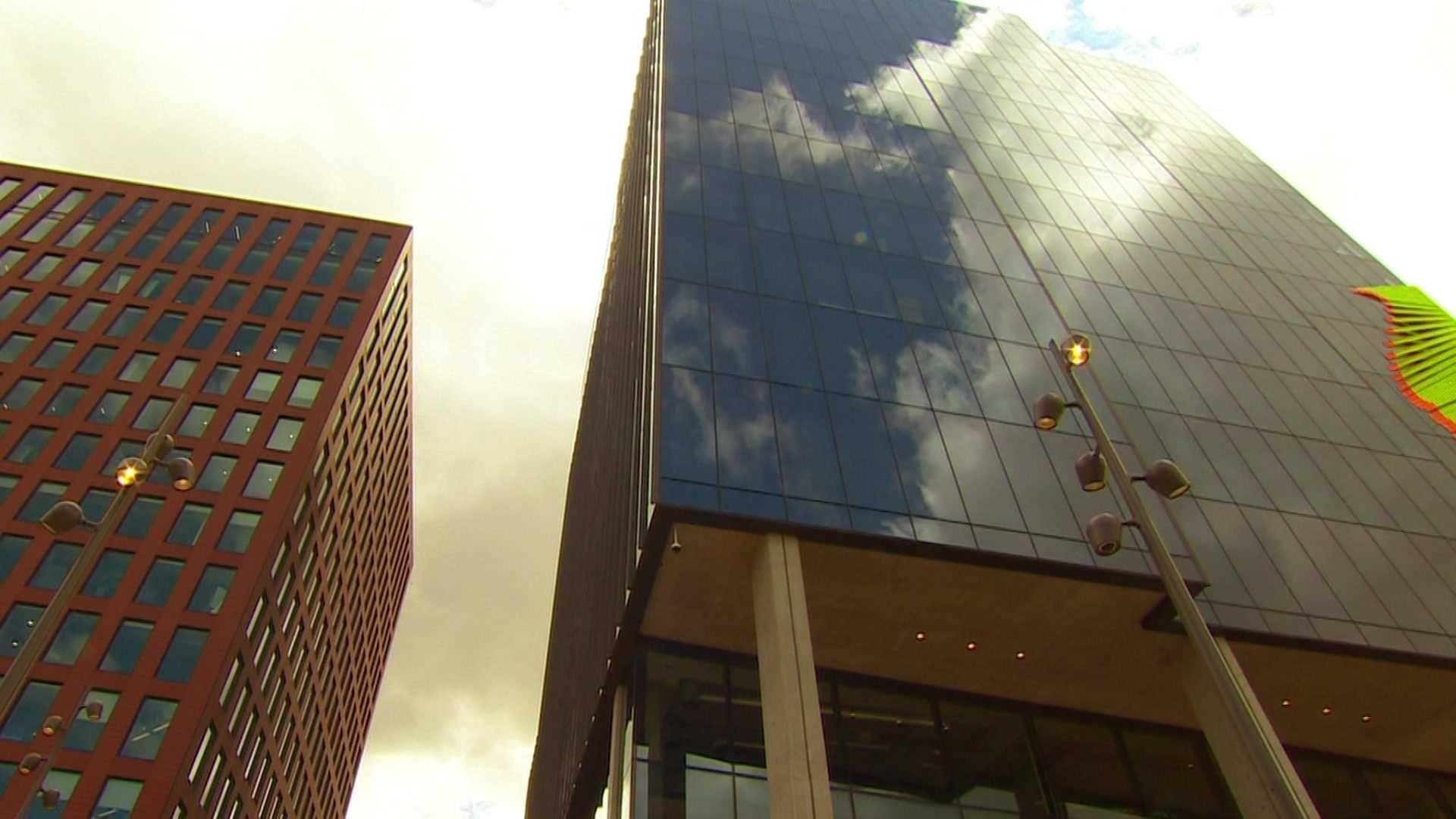
Cities and towns like Reading need to be able to cope with an increasing number of hot weather events
Get in touch
How are you finding the hot weather? Send in your comments, pictures and videos.